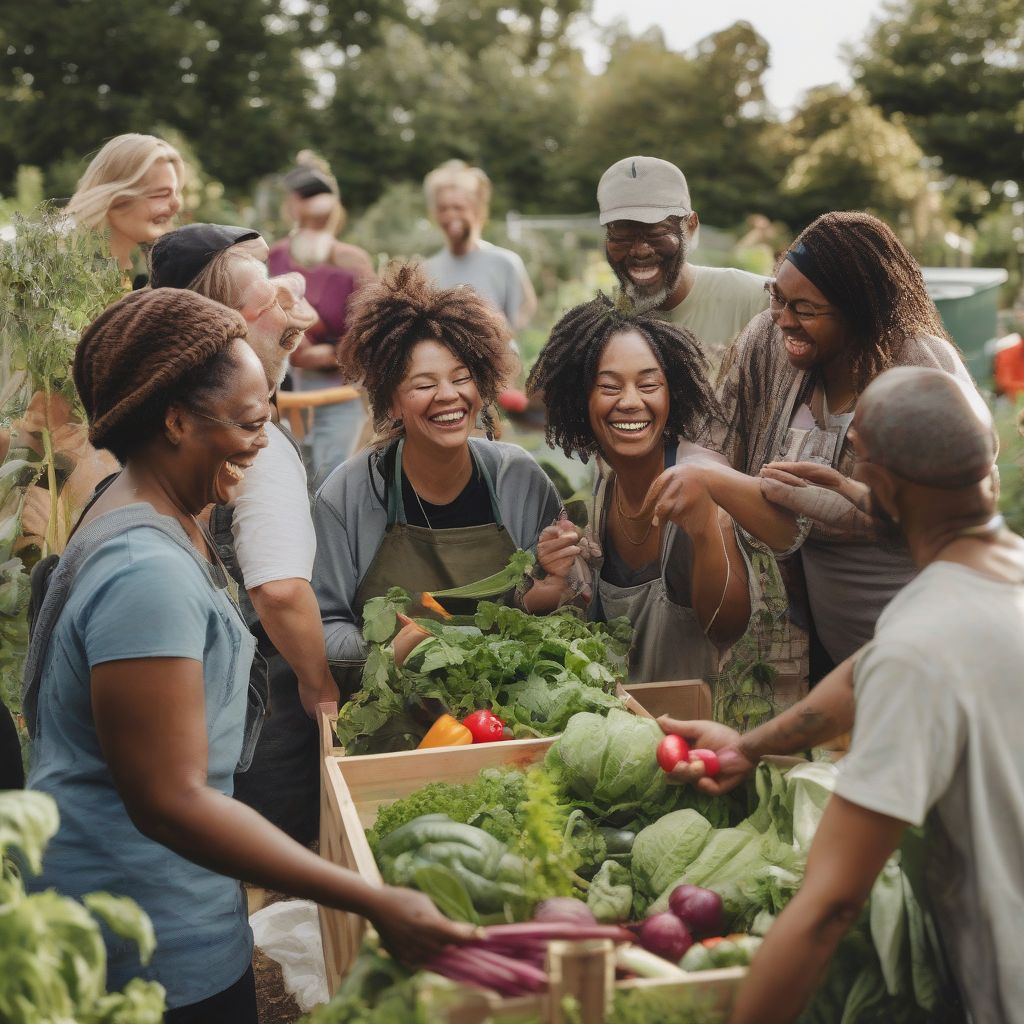Have you ever daydreamed about a world where everyone has access to healthy, affordable food, produced in a way that respects our planet? It’s a beautiful vision, right? And while it might seem like a far-off utopia, the truth is, each of us can contribute to making this dream a reality by advocating for sustainable food practices.
But what does that even mean? And how can one person, you or me, really make a difference? Don’t worry, you’re not alone. In this article, we’ll break down exactly what sustainable food practices are and equip you with practical, actionable steps to become a powerful advocate within your own community and beyond.
Understanding Sustainable Food Practices: A Deeper Dive
Before we jump into the ‘how-to,’ let’s first clarify what we mean by ‘sustainable food practices.’ In a nutshell, it’s about choosing and supporting food systems that are:
- Environmentally Sound: This means minimizing environmental harm by reducing food waste, conserving water and soil, and opting for eco-friendly packaging.
- Socially Just: A sustainable food system ensures fair wages and safe working conditions for everyone involved in the food chain, from farmers to grocery store workers.
- Nutritionally Sound: It prioritizes access to healthy, culturally appropriate food for all, promoting overall well-being.
- Economically Viable: Supporting local farmers and businesses, promoting fair trade, and ensuring the long-term affordability of food are all crucial aspects.
Practical Ways to Advocate for Sustainable Food Practices
Now that we have a clearer understanding, let’s explore how you can champion this important cause:
1. Start with Your Plate: Making Conscious Food Choices
“The most powerful action you can take to advocate for sustainable food practices is to vote with your fork, three times a day.” – Anonymous
It might seem simple, but your everyday choices have immense power. Here’s how to make your plate more sustainable:
- Embrace Plant-Forward Eating: Did you know that animal agriculture is a leading contributor to greenhouse gas emissions? By reducing your meat consumption, even by a little, you’re already making a huge difference.
- Meatless Mondays: Start by dedicating one day a week to plant-based meals.
- Explore Meat Alternatives: Experiment with delicious and versatile options like tofu, tempeh, lentils, and beans.
- Prioritize Local and Seasonal: Supporting local farmers not only strengthens your community but also reduces the environmental footprint associated with transporting food over long distances.
- Visit Farmers’ Markets: Connect directly with farmers, discover fresh, seasonal produce, and support local businesses.
- Reduce Food Waste: A staggering one-third of all food produced globally is wasted!
- Plan Your Meals: This simple step can significantly reduce impulse purchases and prevent food from ending up in the bin.
- Compost Food Scraps: Turn your food waste into nutrient-rich compost for your garden.
2. Amplify Your Impact: Spreading Awareness and Engaging Others
“Never doubt that a small group of thoughtful, committed, citizens can change the world. Indeed, it is the only thing that ever has.” – Margaret Mead
Your actions speak volumes, but your voice can ignite a movement:
- Start Conversations: Share your passion for sustainable food with friends, family, and colleagues.
- Use Your Social Media Platforms: Share articles, recipes, documentaries, and your personal journey towards sustainable eating.
- Support Sustainable Businesses: Patronize restaurants and grocery stores that prioritize local sourcing, ethical practices, and waste reduction.
- Contact Your Elected Officials: Advocate for policies that support sustainable agriculture, reduce food waste, and ensure food security for all.
3. Beyond Your Plate: Collective Action for Systemic Change
Individual actions are essential, but true transformation requires collective effort:
- Join a Community Garden: Connect with nature, learn about food production, and build community resilience.
- Support Food Banks and Food Justice Organizations: Volunteer your time or donate resources to organizations working to combat food insecurity.
- Educate Yourself: Stay informed about food system issues and advocate for policies that promote sustainable practices.
 Advocating for Sustainable Food Practices
Advocating for Sustainable Food Practices
Conclusion: Sowing the Seeds for a Sustainable Food Future
The journey towards a more sustainable food system is an ongoing one, but every step we take, no matter how small, makes a difference. By adopting conscious food choices, raising awareness, and advocating for systemic change, we can collectively create a future where everyone has access to healthy, affordable food, produced in harmony with our planet.
What sustainable food practice will you embrace today? Share your thoughts and actions in the comments below!
[amazon bestseller=”sustainable cooking”]
